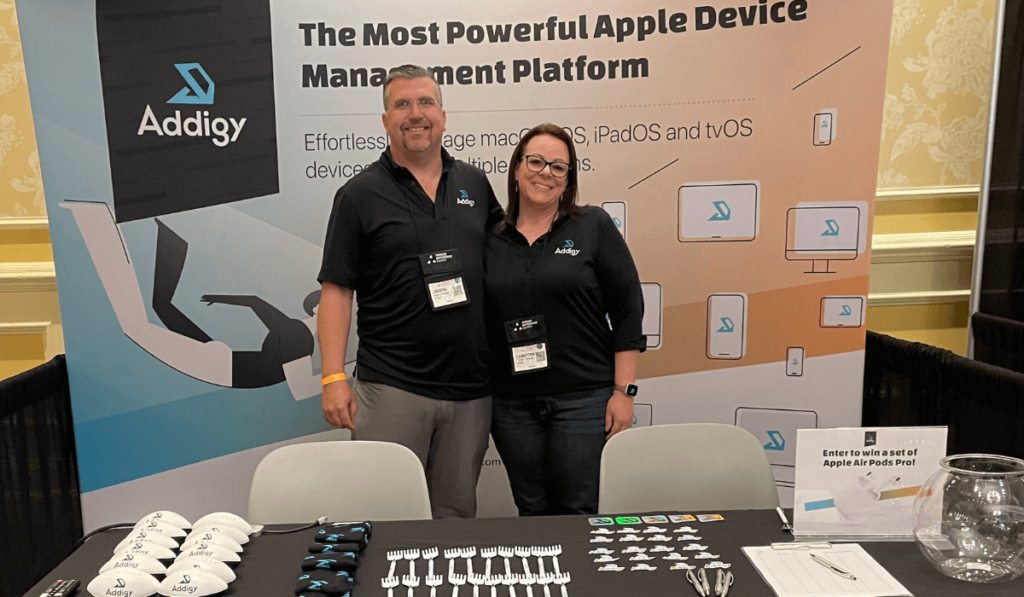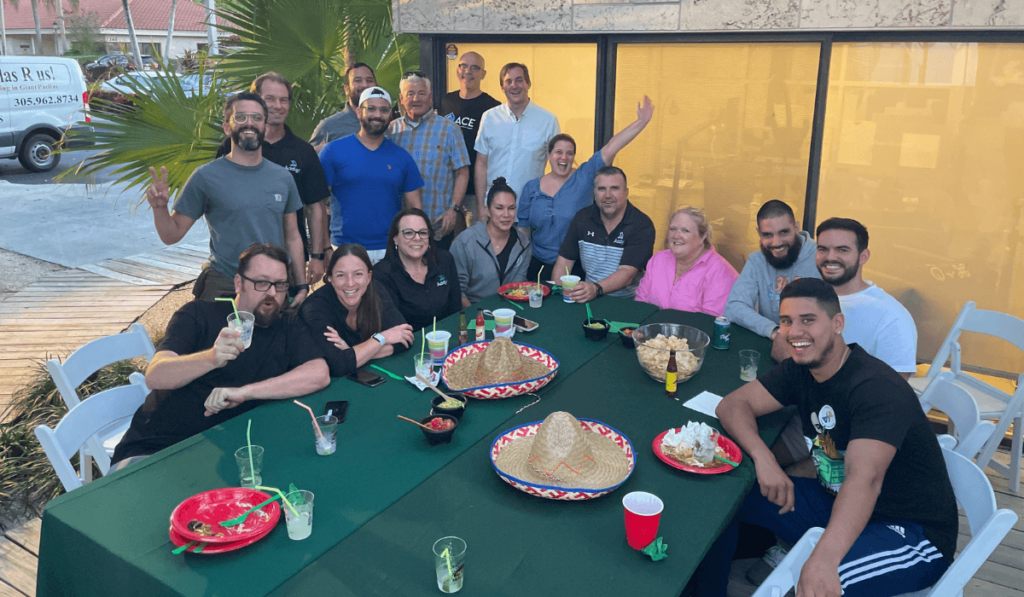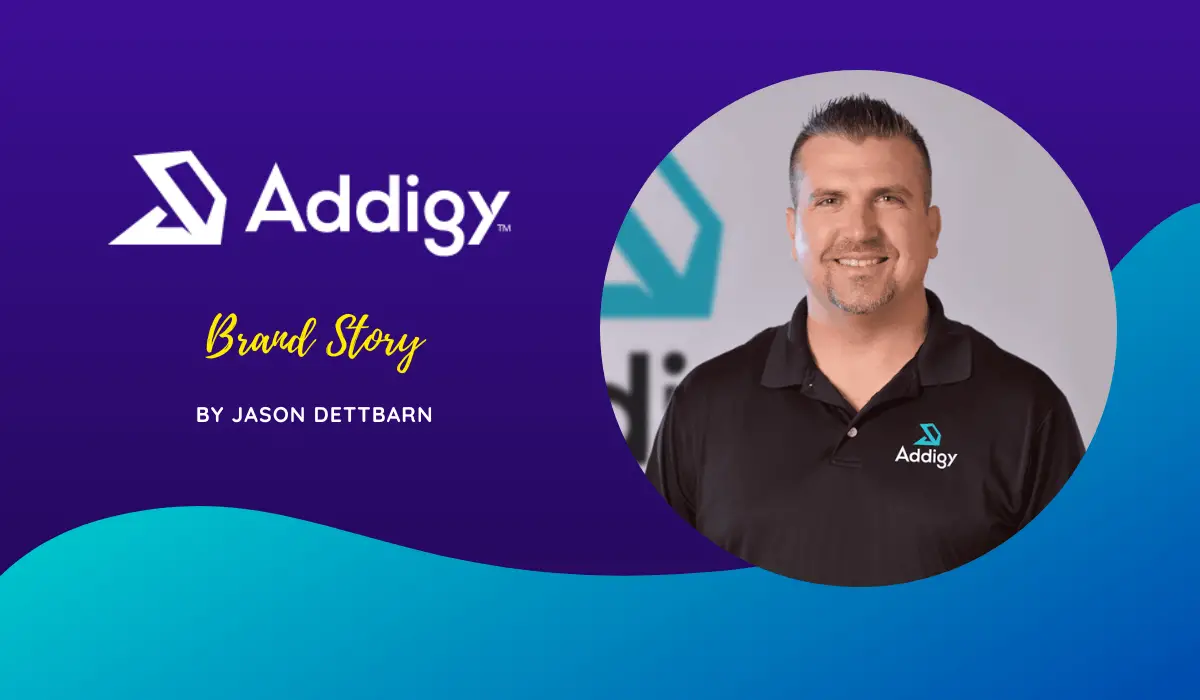My name is Jason Dettbarn and I’m the Founder and CEO of Addigy, a world-leading, cloud-based IT management platform for all Apple devices. Today, I will share everything that I have learned so far. Hope it will be helpful!
Company culture takes time to build, but when it’s done correctly, it comes from within, not from the top.
I realized this early on after one of Addigy’s holiday dinners. I couldn’t fly into town the night before to go out with the team because I was juggling a few school-based things with my kids along with several work-related responsibilities.
Despite this and without me suggesting anything, everyone from the team met up anyway. They ended up having drinks, dancing, and having a great time together.
When I found out, I knew that we as a company would be okay and that our culture would evolve with or without me — that was really a key milestone for me not only as a business owner but for us as a company. But it did take us a while to get there.

The Beginnings
I’m a software engineer by trade, but at some point, I became fascinated with growing a great business. I knew that to be successful I’d need to learn the sales and business side of things, so I focused on those areas while working for Computer Associates (CA) and Kaseya. It was during that time that I began thinking about building a business.
I knew I wanted to focus on the Mac, as the Mac was and still is a glorified Unix system, so you can really do a lot more with a Mac than with a PC. Coupled with the fact that no one was focused on the market segment and the need to manage Mac devices with incredible innovation was becoming increasingly apparent, I decided to launch an Apple device management company.
I quit my job in 2015, which I was fortunate enough to do, as my wife was able to pay our bills, and I rented out a space in the back of a strip mall for $300 a month. Since I started Addigy without a product, I needed to make enough money to pay the engineers to build the product for me.
During the day, I was coding and selling, and at night, I provided IT support, making $4,000 here and $4,000 there. It was a lot of work, but it all paid off. Within a short amount of time, we grew to $2 million in annual recurring revenue (ARR).
At that point, we brought on capital partners and began growing our team.
Early on, I often times had customers ask me about my team. I remember one customer asking me, “How many employees do you have?” I looked around the office and counted the number of filled seats; we had about three or four employees at the time, so it didn’t take me long to do the math.
I responded with, “We’re really close to hitting 10 people!” To which the customer replied, “It’s amazing you’re able to produce a product of this quality with just 10 people!”
That type of feedback helped us build and grow. While we made a lot of mistakes along the way, our customers kept us on the right track by reminding us of what we were doing right and where we were going wrong.
But with growth comes the responsibility of hiring the right people.
See Also: Modular Closets – Brand Story by Christina Giaquinto (Brand Ambassador)
Building the Right Team
Besides having a high bar for the quality of aptitude coming in, I’ve also learned to look for team players; people who are able to check their egos at the door.
The ego can destroy not only a business but an industry. Just look at the medical field. The worst doctors in the world are the ones with the biggest egos. They also end up blaming other people for their problems and aren’t willing to learn, evolve, and adapt.

Whenever I’m considering hiring someone, I think, “Is there an ego in there?” If there is, it’s going to be a hard pass for me. I feel like we’ve become really good at weeding out candidates with egos, and it’s something I’m proud of.
What we look for instead are people who are hungry, humble, and smart — those three areas are key. For example, one of our recent marketing hires worked really hard to get in front of me on LinkedIn and share what she can do, and how strong and hungry she was. Even though we already had a stack of resumes, I added her to the top of the list of those we were reviewing.
While you can’t teach someone to be hungry, humble, and driven, you can teach everything else. Interestingly enough, those are also the traits of a successful business owner.
What I’ve Learned
Another large part of my story is learning to become a business owner, and there’s a lot I’d like to share. Most importantly, it’s okay to seek help when you’re starting a business. Don’t underestimate what’s out there.
For example, there are people in their 20s willing to grind and make sacrifices if there’s the potential for a big payoff. Of course, they can do this because they typically have fewer bills and responsibilities. They’re also more passionate and hungrier (there’s that “hungry” word again).
Then there are others who are so sick of the corporate world, made a pretty good amount of money, and are bored, so they, too, are willing to help someone launch a business. Instead of wanting large sums of money, they just want a little money here and there, or a little piece of equity — nothing big.
Something else I learned? Don’t put yourself on a timeline. Your business may not start generating revenue immediately — and it may not be in six months. You don’t have to scrap everything and go get a job if things don’t work out in the beginning. You don’t want to put yourself in a situation where you’re making desperate moves.
Here’s the thing: Anytime you start a company, you need to prioritize what’s most necessary. Oftentimes entrepreneurs get distracted by focusing first on building the perfect website, growing the newsletter, getting the logo right, etc., but forget about the people. If your company culture doesn’t lean in with your customers, you’re in trouble.
We’ve been pretty successful over the years at Addigy. Today, we have more than 8,500 customers and our team continues to grow. Our company culture is one of the main reasons for our growth, and it’s something we’re protective of even to this day.
Remember: It’s all about the people; the product is just a moment in time.
Also Read: Futr – Brand Story by Andy Wilkins (Founder & CEO)





